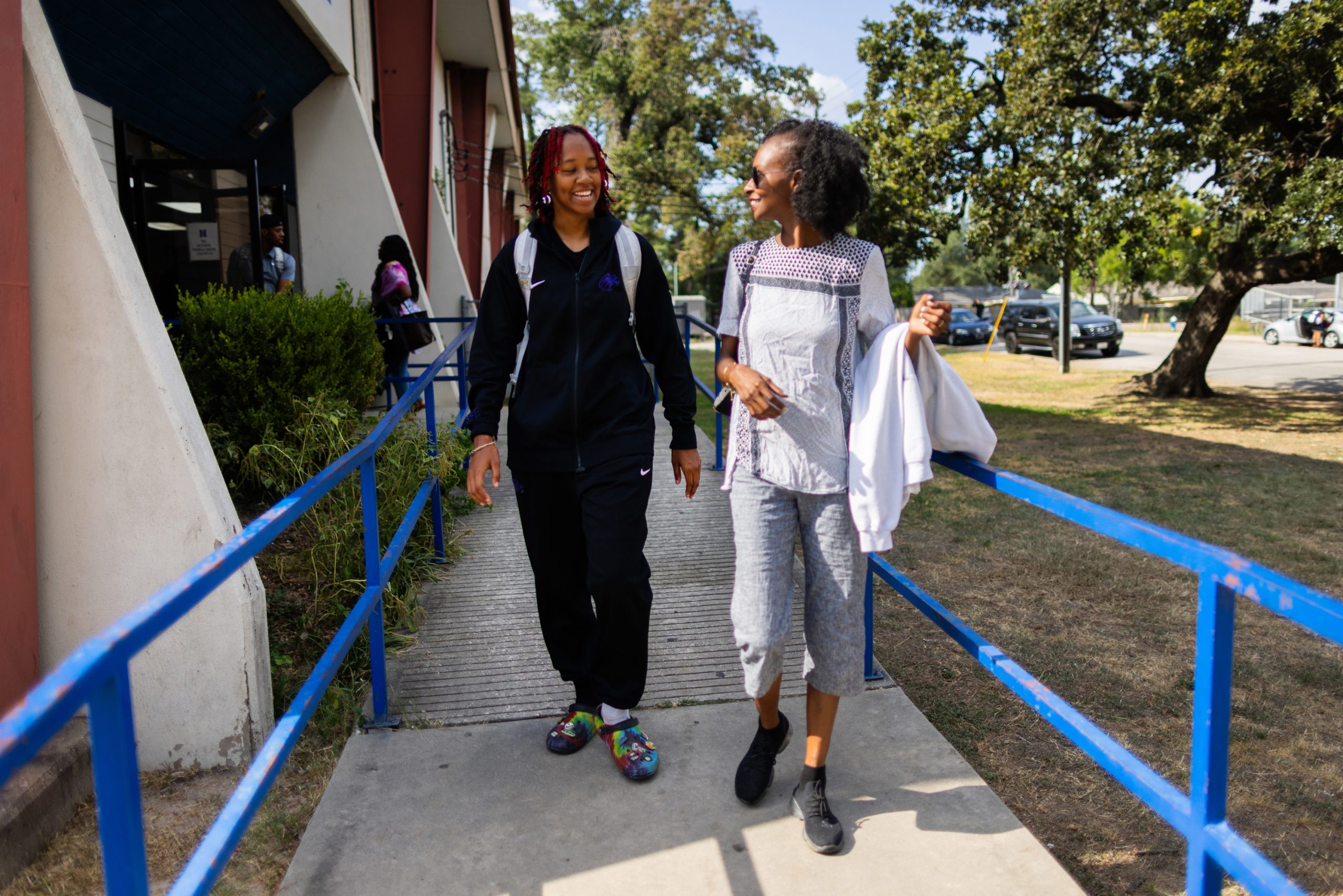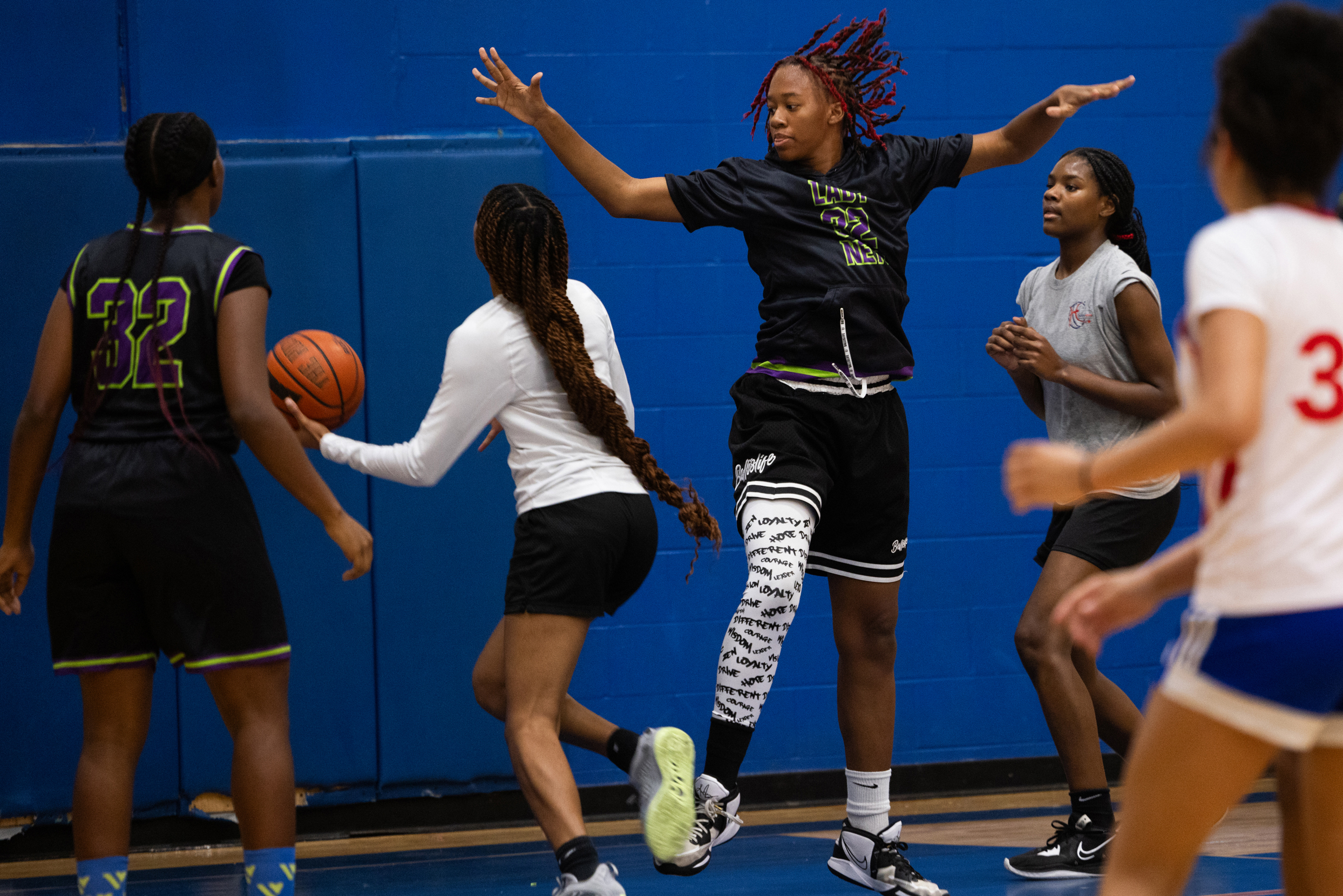|
Getting your Trinity Audio player ready...
|
Spring Branch resident Erin Sweed started really focusing on her daughter’s screen time around 2018. Her daughter, who was 10 years old at the time, was using a computer for school and received her first cellphone.
As her daughter, who is 15 years old, grew older, it’s become harder to manage her screen time, but Sweed strongly advises that parents talk with their children.
“If your kids aren't doing anything around the house, take their screen time, take it away and make them get active,” Sweed said. “It's so easy for kids to get stuck in their phone and forget about everything else in life.”
On average, teenagers between 15 and 18 years old spend around eight hours daily on a screen, according to the Centers for Disease Control and Prevention.
As the new school year nears, here are tips on how parents can start managing children’s screen time.
Start now rather than later
Jessica Rogers, founder and CEO of the Houston tutoring company TutorVille, said parents should start adjusting their children’s schedules and routines now rather than later. She suggests setting exact times for when children should head to bed and wake up.
If children have been on screens a lot this summer, she suggests parents start adjusting time limits for when they can be on their phones.
“Whatever rules parents have put in place as far as screen time goes, just make sure that they're followed. Because as soon as you can create that habit, then it just becomes something normal right in the child's day-to-day activity,” she said.
Nicole Hill, communications director for the Texas American Federation of Teachers, echoed that parents need to start setting routines before the school year begins.
“Every kid is different,” Hill said. “Every family is different. There’s no silver bullet on how many hours or what time things cut off, but the biggest thing is just to set a routine, stick to it, it gives kids that consistency and to start easing back into that routine now.”
To prepare her daughter for the school year, she said her family has already started planning out upcoming events including homecoming, birthdays or basketball tournament dates.
“That's kind of what we're doing now is getting the schedules, getting the calendars together, figuring out what our goals are for the year, and just kind of making a plan so that we can stay focused,” she said.
Set boundaries and use a reward system
Rogers said parents should remind themselves that they are the parent, and they can set rules and boundaries. She recommends parents lead by example and start modeling the new behaviors.
Encourage children to read a book or play an educational game and then reward them with screen time, Rogers said.
“If it's a really big problem in your house, you know, start off small,” she said. “And maybe if your child is incentive-based, driven, then maybe you offer some sort of incentive for them to give up their phone for the night or something else.”
Rogers often receives calls from parents asking how to lower their teenagers’ screen time. She suggests designating media-free zones in their homes and times where phones are off limits during dinner.
She recommends encouraging children to not eat in front of the TV or iPads. Instead, she encourages families to watch shows or movies together as family time
Additionally, if there are commercials, suggest children use the short breaks to do simple exercises like jumping jacks or yoga to keep them active and engaged.



Communicate, set routines
Hill recommends that parents observe how screen time affects their children’s behaviors. Become aware of how their moods change or if it’s harder for parents to get them into routines and communicate with them.
The key before school starts is communication along with consistency with children, Hill said. Talk to them about what social media platforms they are using and how they feel about them.
“[Children] may not be fully aware of its effects on them, but you as a parent might notice some things that they're not going to notice,” Hill said. “So creating the routine and consistency now in summer is going to pay off in the semester when things get hectic.”
Sweed said she had a conversation with her daughter when she started at a private school. She told her daughter that she was going to see how she could manage her own screen time.
“I shouldn’t have to babysit you and watch you,” she recalled telling her daughter. “So we're going to see how this goal, see how you manage your time, and see how your grades and everything reflects from it. And from there, I'll know if you can handle it, or if I need to supervise you a little bit more.”
Children who use devices during school hours
Throughout the school semester, Hill said parents should talk with their children if they notice issues arising.
Additionally, she advises parents to stay in contact with the children’s school teachers and counselors. Aside from parents, teachers and counselors see them daily and they are part of the team.
“You don't have to wait for a parent-teacher conference. You don't have to wait for something bad to happen,” Hill said. “Just stay in touch. They want to hear from you. They want to talk about your child, and they want to help address things before they're a problem. “
Sweed’s daughter transferred into a private school after being homeschooled, and her private school encourages accountability. Sweed decided to allow her daughter to manage her own screen time last year. She then noticed that her daughter started to become distracted.
If the assignment did not require the computer, she did not need to be using it.
“I went and met with every one of her teachers she was struggling with, and I told them, you see her with that computer, you take it away,” Sweed said.
Deciding on how much time to limit to screen time
Children six to 12 years old should have consistent limits on the time spent using media, Rogers said. The usage should not replace times where children should be sleeping or doing physical activities.
Once nighttime comes around, Rogers suggests having a boundary of when their devices will be shut off or given to the parent.
“The kid, no matter the age, has to turn in their phone, turn in their iPad at dinner time, at bedtime, during homework time,” she said.
If her daughter’s grades start slipping, Sweed said she finds certain times where she puts her daughter's phone in a corner or away from her. She also loses access to the internet at night.
Additionally, Sweed tries to find time for them to play card games and put devices away as a family.
“Make sure you take your kids out of that technology, out of the screen time, out of the TV show, out of the games and actually spend time with them just doing something,” she said. “I don't care if it's walking to the corner, teaching them how to ride a bike, how to wash dishes, how to take the trash out. This is something these kids are really missing.”


